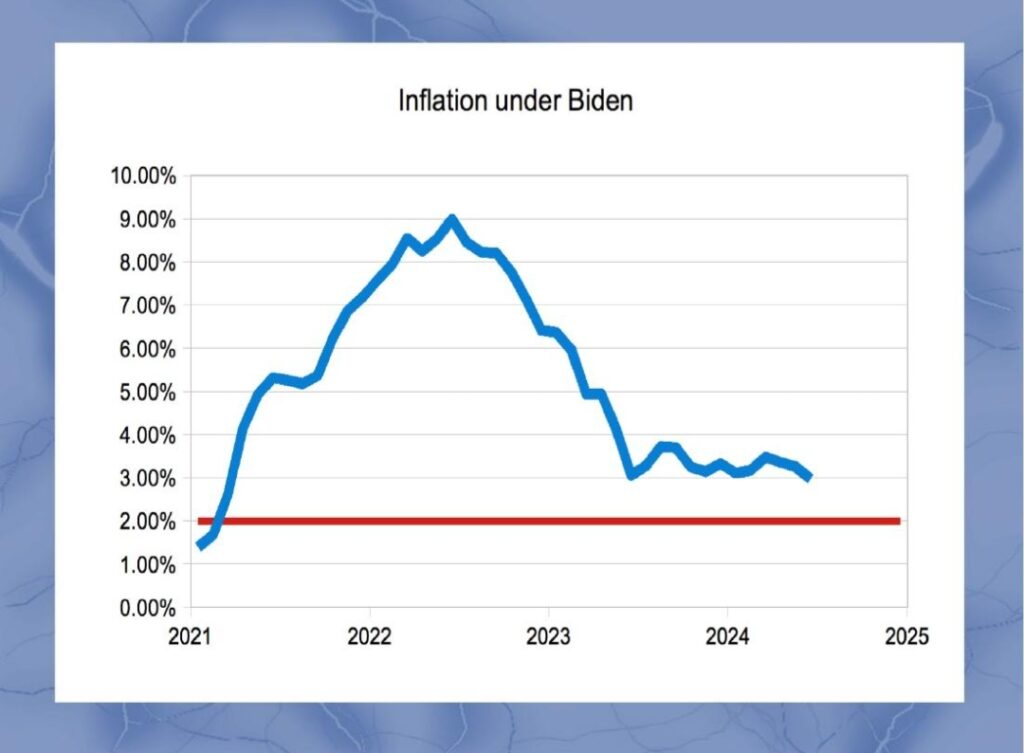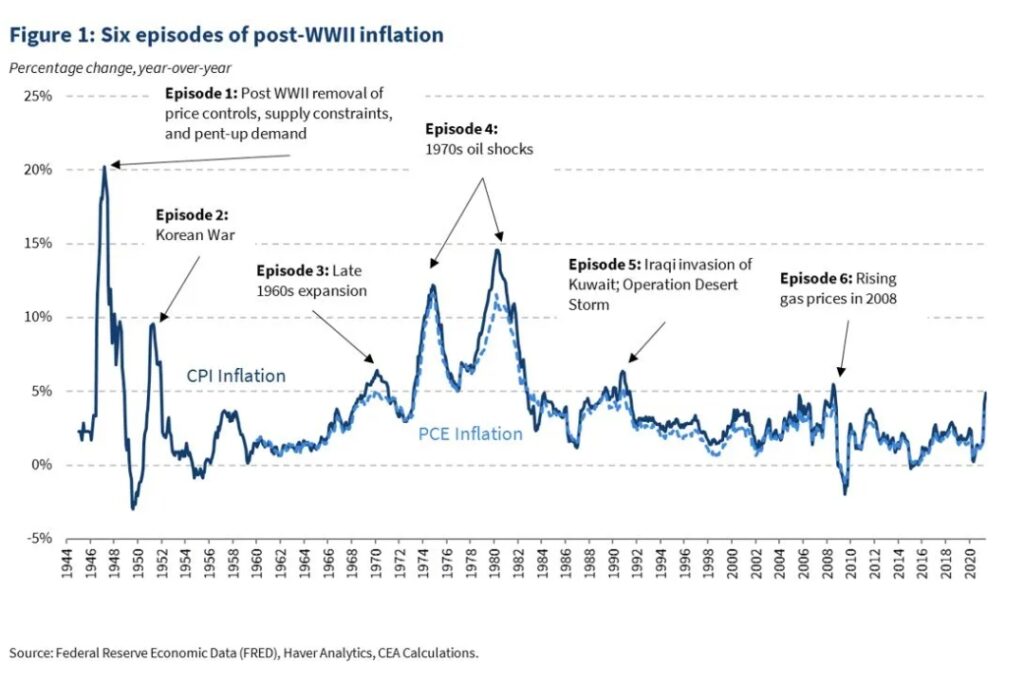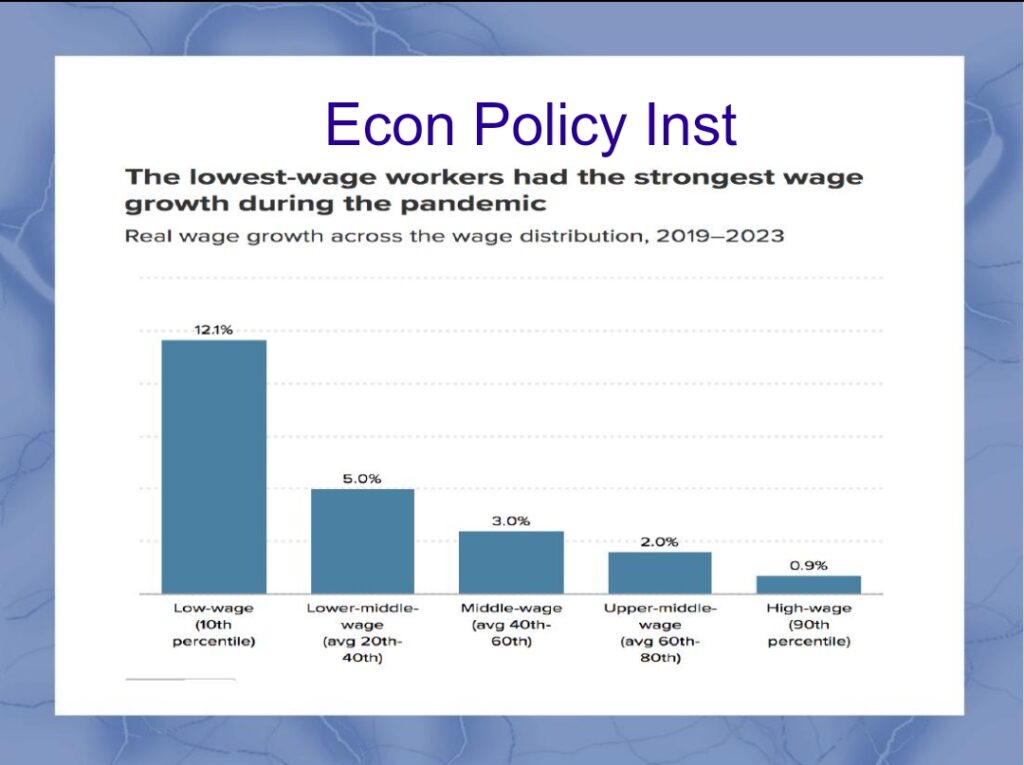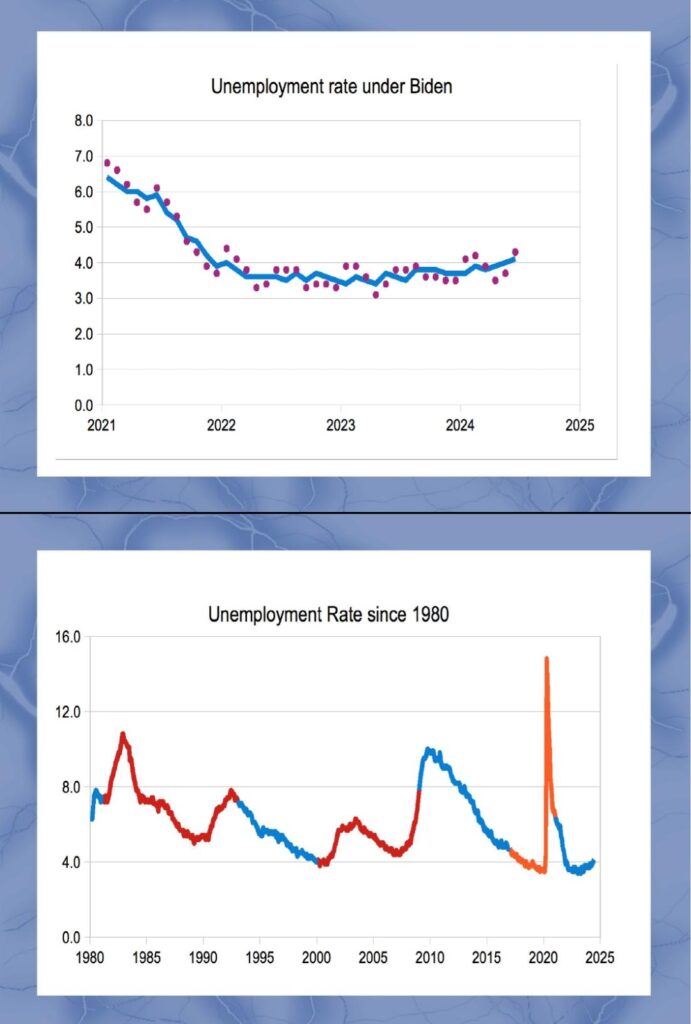Written by Elijah Shoults
A common refrain we hear every election cycle is “are you better off now than you were four years ago?” Right now there are many who would answer “no”, and many who would answer “yes”. In every economic boom there are those who are left behind, and in every economic downturn there are those who emerge no worse for wear. Economics is a complicated subject because it is a study of how billions of human beings interact with each other and with the natural world. It’s easy to assign blame or praise to whoever is sitting in the Oval Office at any given time, what’s more difficult is trying to untangle the web of checks and balances that exist between the different branches of government, the power of private corporations, and natural events which are beyond anyone’s control.
The Biden administration came into office with the unenviable task of battling a global pandemic and the economic shockwaves it had created. Our hospitals were pushed beyond their capacity, and without lockdowns in place to slow the spread of the disease it would have been much worse. Global supply chains were disrupted by enhanced health procedures and because of drastic changes in people’s buying habits. Money needed to be infused into the economy to support workers and businesses affected by the lockdowns. These were major factors which contributed to historic inflation rates, but they were necessary to keep people safe. Four years ago we were losing thousands of people to COVID every week, peaking at almost 26,000 a week by the end of Trump’s term, drastic measures needed to be taken.
Here is a series of charts of economic data prepared by Wisconsin economist M. Kevin McGee:




Since we got the pandemic under control the unemployment rate under Biden has been historically low, mostly less than 4%. Going back to 1980 you can see a pattern of how unemployment spikes during a Republican administration, and then the Democrats have to clean up their mess. The chart of “Average Work Hours” also demonstrates how these are mostly full-time jobs in line with historical norms.
The rate of inflation peaked in June of 2022 at about 9%, it would have peaked sooner and lower if Russia hadn’t invaded Ukraine in February, sending more disruptions through the global food and energy markets. Inflation steadily fell throughout the rest of 2022, and since early 2023 the rate has varied between 3-4%. It’s still higher than the Federal Reserve’s target rate of 2%, but not drastically outside of historical norms. In the same time frame since inflation stabilized, “real wages” have been growing.
Besides supply chain disruptions and cash infusions, another driver of inflation is corporate profiteering, their profits have been soaring since the pandemic. Even after their input costs dropped they kept their prices high to rake in more profits rather than passing those savings on to the consumer.
Now consider these three factors that drive inflation: profiteering, cash infusions, and supply chain disruptions. All three of them are made worse by Republican policies, and they block the Democrats’ efforts to fix them. In 2022 the then-Democratic-led House passed the Consumer Fuel Price Gouging Prevention Act while every Republican voted against it. The measure stalled when it moved to the Senate, which requires Republican support to overcome a filibuster.
Similarly this year Democratic senators introduced the Price Gouging Prevention Act of 2024, it has also not been allowed to advance. Trump’s 2017 tax cuts slashed taxes on the rich while doing very little for the poor and middle class. This led to a loss of revenue for the government and consequently an increase in deficit spending. If the government had more revenue when the pandemic hit it wouldn’t have needed to rely so heavily on deficit spending, meaning there would have been less cash infusion. A report from the Center for Strategic and International Studies, a bipartisan think tank, lists several ways to bolster supply chain resilience.
Having a diverse workforce with a wide array of experiences helps to identify more problems before they occur, but Republicans routinely oppose efforts to promote diversity, equity, and inclusion (DEI). Unions are proficient in retraining and upskilling workers, but Republicans tend to pass laws which hinder them. Coping with “shock events” requires having buffers available (reserve supplies, extra workers that can be called up) but producers often focus on short-term profits by running lean operations. Government could regulate critical industries to require them to maintain such buffers, but deregulation is a hallmark of Republican policy.
There are many ways in which the Biden administration has strengthened our supply chains and paved the way for a more prosperous future. In the first year of his presidency Biden led a bipartisan effort to pass the largest infrastructure spending bill in decades. This was long overdue and badly needed to fix America’s crumbling roads, outdated electric grids, and more.
Not only will this protect against future supply chain disruptions, it will also create jobs for years to come. Construction spending in the manufacturing industry has spiked thanks to the Democrats’ initiatives.
Zooming out from our own country, there are other countries around the world that we can learn from. America has the highest rate of medical bankruptcies in the world, most other developed countries don’t have any because they use single-payer health care systems where medical costs are financed by taxes. The Nordic countries have a consistent record of low rates of poverty and violent crime. They achieve this through strong social safety nets, free education and a strong pension system. These are all things which progressive Democrats support and Republicans reject. Achieving this level of change won’t happen overnight or with a simple majority. Since 2000 Republicans have twice won the Electoral College while losing the popular vote. A supermajority is required to pass legislation through the Senate. Conservative judges often have lifetime appointments and can block laws we work hard to pass. We need to continue to vote Democrats into office so they can pass laws and appoint judges, and pay attention to their policies during the primaries.
